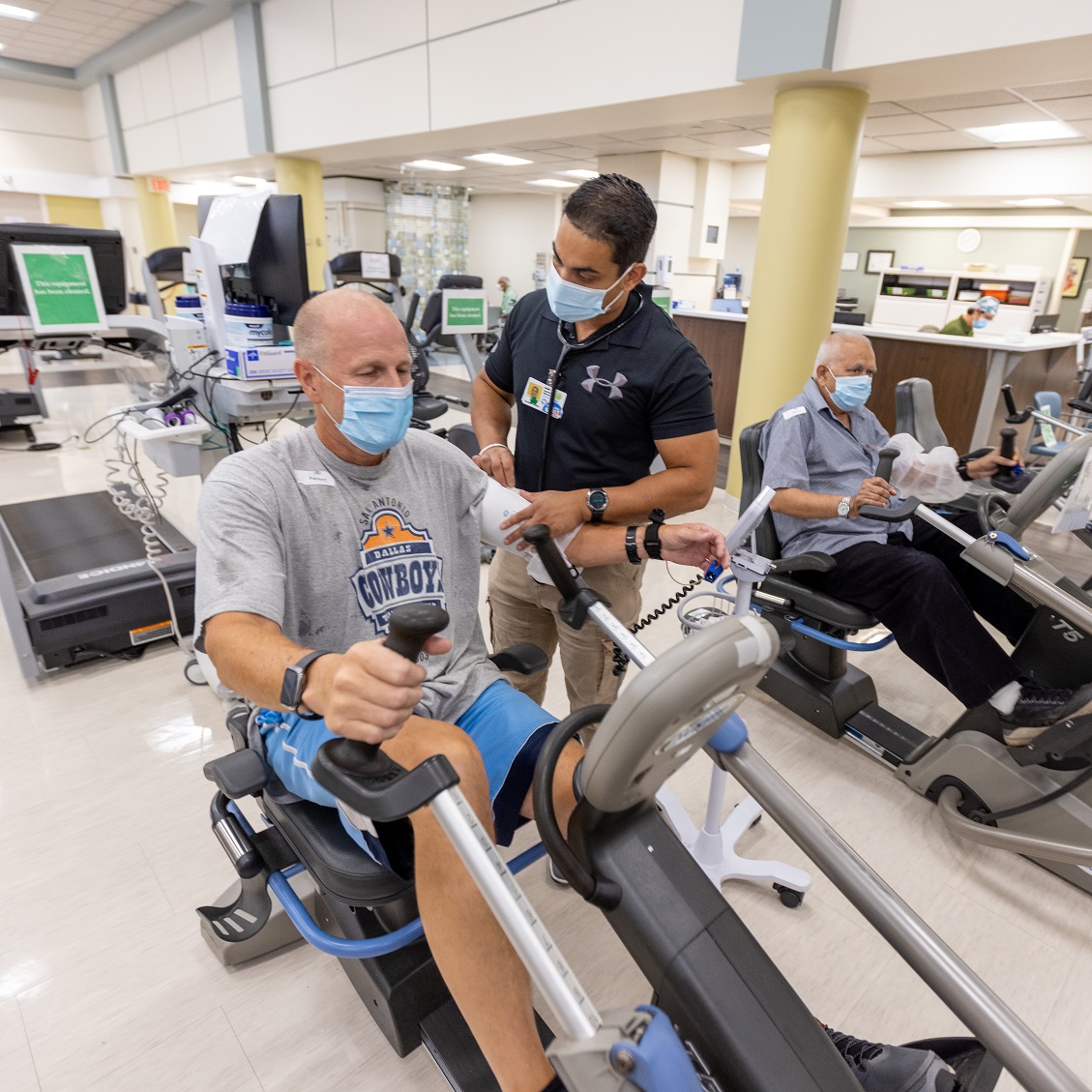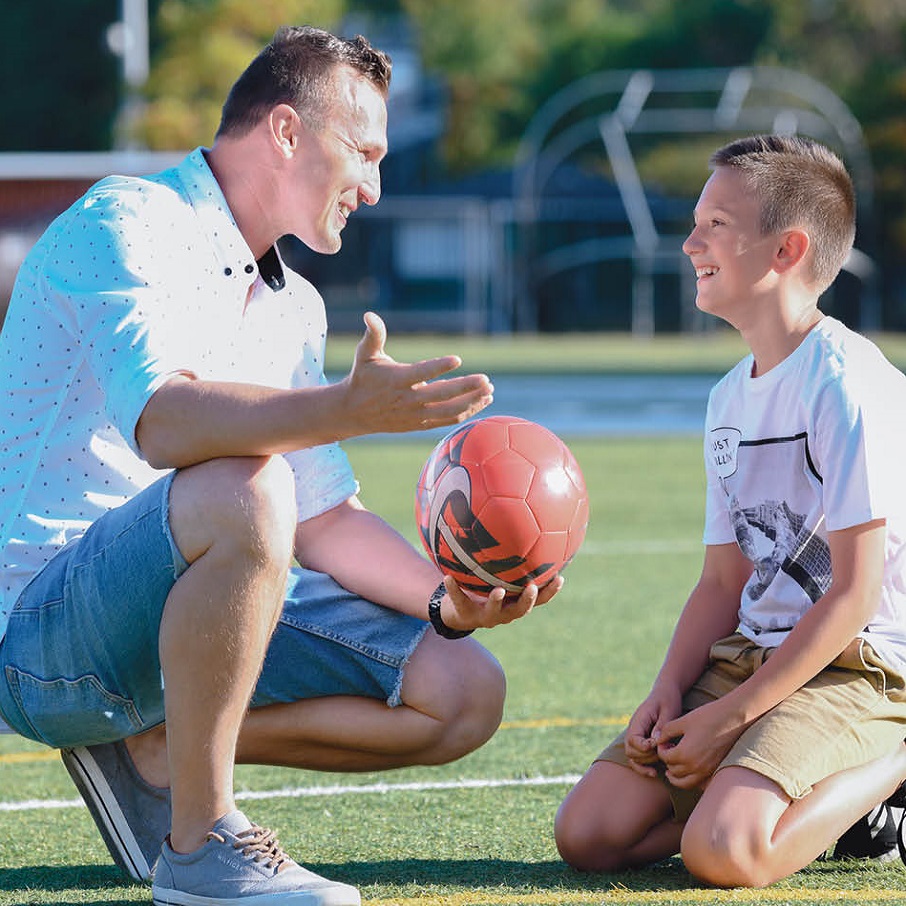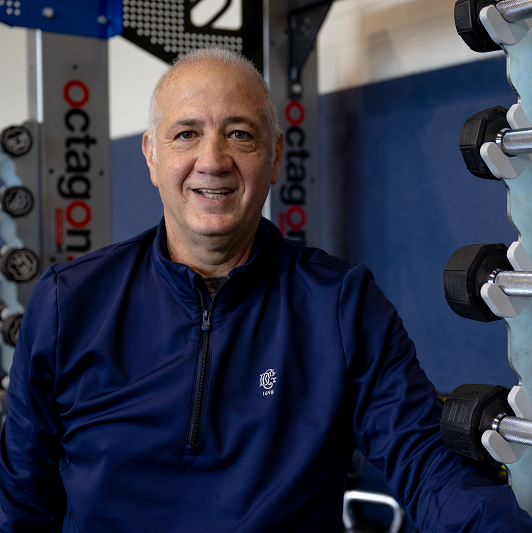Cardiac Rehabilitation Keeps Brick Man Active After Multiple Heart Surgeries

June 12, 2025
Call Don Squier an overachiever, and he’d probably blush. He’d say he’s nothing extraordinary. But the 88-year-old great-grandfather of five stands out for taking charge of his heart health. His proactive approach has helped him stay strong, even after several serious heart problems.
The Brick, New Jersey, retiree recently logged his 1,000th workout at the cardiac rehabilitation program at Ocean University Medical Center. He’s one of the few who keep going long after most people stop. Most heart patients go for up to 36 visits. The program includes exercise, healthy eating tips and stress management. It’s meant for people who’ve had a heart attack, heart surgery or heart failure, says Ocean rehabilitation nurse Jessica Capper, RN.
“I definitely think Don is an overachiever and a go-getter,” Jessica says. “Every time he gets knocked down, he gets back up. It’s amazing to watch, and it’s keeping him moving and motivated.”
Strong Commitment
Don’s heart problems started when he was relatively young. In 1983, at age 47, he had a heart attack. He needed open-heart bypass surgery to reroute blood flow around four blocked coronary arteries. Don had a second bypass surgery 17 years later. At that point, doctors found five of his coronary arteries were blocked.
After each surgery, Don continued cardiac rehabilitation for three more years. He worked out on bikes, treadmills and rowing machines under the care of skilled clinicians. Don was committed to keeping his heart issues at bay through cardiac rehabilitation.
“It wasn’t a chore,” says Don, a proud father of four grown children and seven grandchildren. “I enjoyed it. It definitely made me stronger and strengthened my heart. My breathing improved, and it kept my weight at a reasonable level, too.”
Don’s cardiac challenges continued but never defeated him. Routine testing revealed another coronary artery blockage in 2013. Ocean cardiologist Ali Moosvi, M.D., put in a stent to prop open Don’s narrowed vessel in a minimally invasive procedure. Don has been attending cardiac rehabilitation at Ocean ever since. He even went to rehabilitation when he had a pacemaker implanted in March 2024 to remedy an irregular heartbeat. Don takes medications to lower his blood pressure and cholesterol and to prevent clots. “The expert staff knows each patient and provides caring, individualized treatment and support”, says Todd Cohen, D.O. and medical director of cardiac rehabilitation at Ocean.

Mental Benefits
As Don approaches his 89th birthday, he’s had to slow down a little. His rehabilitation program now mostly involves using a recumbent bike, which lets him work both his arms and legs while sitting in a reclined position. He still values the medical support, even though he no longer needs to be hooked up to monitors like in the beginning.
“I don’t think I’d still be here without the rehabilitation program,” says Don, who’s looking forward to a two-week trip with his wife, Katie, to the Caribbean this year. “I think Ocean’s program is a lot better than others because it’s more serious. And if anything happens, I’m right there at the hospital.”
Both Jessica and Don feel he has also benefited from the social aspect of the program, which helps cardiac patients navigate the mental challenges that come with heart problems.
“Many patients come to the same sessions on the same days, and we’ve seen friendships blossom where they go out to lunch together afterward or continue their friendship after they’re done with the program,” Jessica says. “It helps them to know they’re not alone.”

Next Steps & Resources
- Meet our sources: Ali Moosvi, M.D., and Jessica Capper, RN
- Make an appointment with a cardiologist near you or call 800-822-8905.
- Learn more about heart care at Hackensack Meridian Health.
The material provided through HealthU is intended to be used as general information only and should not replace the advice of your physician. Always consult your physician for individual care.






